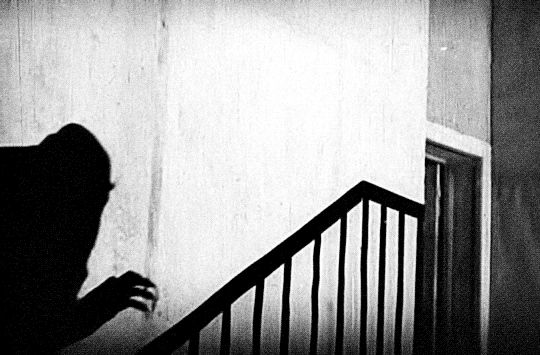Um melodrama singular dirigido por D. W.
Griffith e estrelado por sua musa e constante colaboradora Lillian Gish,
“Inocente Pecadora” ("As Duas Tormentas" em Portugal), com seus 145
minutos, embora com o subtítulo de "uma história simples de pessoas
comuns", é prolixo e ao mesmo tempo fluente como a catarata para que Anna
se dirige sobre uma pedra de gelo, no clímax da produção.
A singular melodrama drected by D.W. Griffith,
starring his muse and Constant collaborator Lillian Gish, “Way Down East”, with
its 145 minutes, although with the subtitle “a simple story of common people”,
is exaggerate and at the same time fluent as the waterfall where Anna is going
to, over a huge ice rock, in the film’s climax.
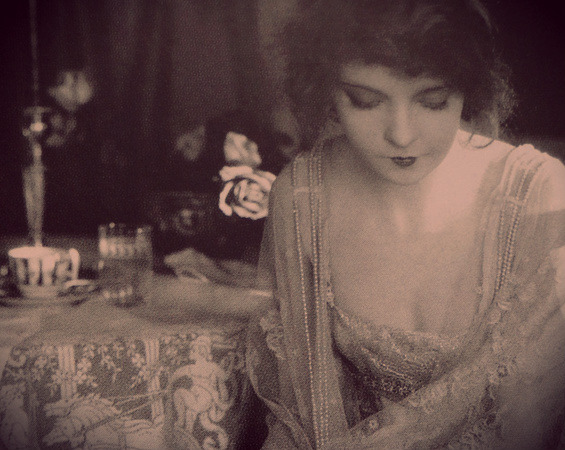
Assim
como a maioria dos filmes mudos, esse tem também uma série de intertítulos que
servem de prólogo da ação. Aqui vemos uma celebração do casamento monogâmico e
o sofrimento que a infidelidade masculina pode causar para a mulher. As
personagens têm nome, mas, como o próprio filme explicita, poderiam ser
qualquer pessoa (ainda não houve a sacada de chamar as personagens apenas de
"esposa" ou "marido", como faria Murnau em
"Aurora", em 1927). Por si só, uma apresentação interessantíssima. E,
quando a ação começa, nos vemos enfeitiçados pelo encanto virginal de Lillian e
torcemos para sua personagem, embora, como em outros filmes, ela sofra, sofra,
sofra e sofra mais um pouco durante toda a projeção.
Like
many other silent films, here we also have some intertitles used to set the
prologue. Here we see a celkebration of monogamy and the suffering that the
male infidelity causes in a woman. The characters have a name, but the movie
reinforces that they could be anyone (there hadn’t yet been the case of naming
the characters just “the wife” and “the man” like it was done in “Sunrise”,
from Murnau, in 1927). Standing alone, this is a very interesting prologue.
And, when the action finally starts, we are bewitched by Lillian Gish’s
virginal spell and we start rooting for her character, even though she suffers,
suffers and suffers a little more, like other characters played by Lillian in
other movies.
Anna,
uma pobre jovem da Nova Inglaterra, vai a Boston pedir ajuda financeira para
uma tia rica. Acolhida falsamente pela ricaça, ela acaba participando de uma
festa na mansão, chamando a atenção do mulherengo Lennox Sanderson (Lowell
Sherman). Depois de algumas investidas, ele a pede em casamento, mas implora
que ela mantenha segredo sobre a cerimônia, pois ele não quer perder a “mesada”
que ganha do tio. Mas ela não pode esconder a verdade por muito mais tempo,
pois um herdeiro está a caminho. É aí que ele revela que eles não são realmente
casados, deixando-a sozinha e desamparada após a morte da mãe. Anna passa a ser
vista como “pecadora” por ter um filho sem ser casada, embora seja “inocente”
por ter sido enganada por Lennox.
Anna, a
poor Young woman from New England, goes to Boston to ask for financial help to
a rich aunt. Taken without affection by the old woman, Anna takes part in a
party at the mansion, and there she meets Lennox Sanderson (Lowell Sherman).
After a few hits, he proposes to her, but begs her to not tell anyone about the
marriage, so he won’t lose the ‘allowance’ his uncle gives him. But she can’t
hide the truth for much longer, because she is with child. Then he reveals that
their wedding was not valid, and he leaves her completely alone, because she
had just lost her mother. Anna is now a ‘sinner’ because she had a child out of
wedlock, but she is ‘innocent’ because her confidence was betrayed by Lennox.

Mais
uma série de tragédias se segue. Numa sequência comovente, Anna batiza seu bebê
sabendo que ele está muito doente e segura-o nos braços até ele morrer, quando
ela tenta, sem sucesso, reaquecer seu corpinho. Lillian relembra que o pai do
bebê estava no set de filmagem e, com a comoção causada pela cena, desmaiou. A
sinistra mulher que alugava a casa para a jovem a obriga a sair, pois ela não
tem boa reputação. Anna tenta recomeçar sua vida na fazenda Bartlett,
escondendo seu passado. Mas um dos vizinhos próximos é o próprio Lennox, que a
enganara e agora teme que sua presença estrague seus novos planos de romance
com Kate (Mary Hay), até então comprometida com David (Barthelmess).
Curiosamente, Barthelmess e Hay se casaram na vida real. Corine Seymour,
presença constante nos filmes de Griffith, gravou várias cenas como Kate antes
de adoecer gravemente e falecer aos 21 anos. Ela foi substituída por Mary e o
que vemos na tela é uma mistura das atuações das duas atrizes.
Another
series of tragedies strike. In a moving sequence, Anna baptizes her baby
knowing he is very sick and holds him in her arms until he dies, and then she
tries, without success, to keep his little body warm. Lillian remembers that
the baby’s father was on the studio watching the scene and, moved by it, passed
out. The sinister woman who rented Anna a room sends her away because of her
bad reputation. Anna tries to start again at the Bartlett farm, hiding her
past. But one of the neiughbors is Lennox himself – he now fears that Anna’s
presence so near spoils his plans to romance Kate (Mary Hay) who was until then
dating David (Richard Barthelmess). As ca curiosity, Barthelmess and Hay got
married in real life. Corine Seymour, a constant presence in Griffith’s films,
shot several scenes as Kate before she fell gravely ill and passed away at age
21. She was replaced by Mary Hay and what we see on screen is a mix of the two
girls’ performances.
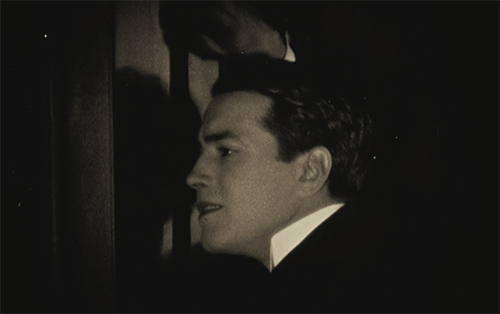
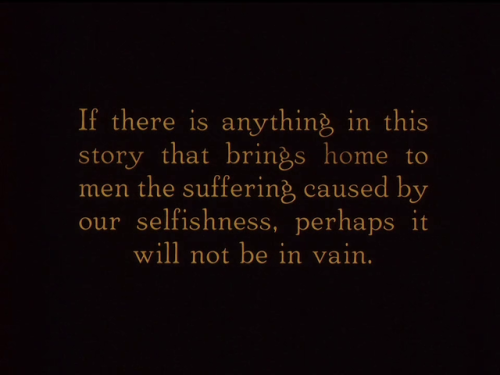
Lillian
está especialmente bonita nesse filme, quase sempre com seus longos cachos
presos em um coque. Os closes durante a festa chique são de uma beleza única,
assim como a interação infantil com uma pombinha. É impossível não ser ofuscado
por sua presença. Seu co-protagonista Richard Barthelmess (com quem também
atuou em “Lírio Partido / Broken Blossoms”, no ano anterior), o sensível
fazendeiro David Bartlett, não chega aos pés dela em tempo em cena. Seu grande momento é quando recita um
poema para ela e diz que sempre a amou – além, é claro, dos momentos como herói
perto do final.
Lillian
is particularly pretty in this film, with her long curls almost always in a
bun. Her close-ups in the fancy party are beautiful and unique, almost as
beautiful as her childish interaction with a dove. It’s impossible not to be
overshadowed by her. Her scene partner Richard Barthelmess (with whom she did
“Broken Blossoms” the previous year), as the sensitive farmer David Bartlett,
has much less screen time than her. His great moment arrives when he recites a
poem to her and tells her he has always loved her – besides, obviously, his
moments as a hero in the end.
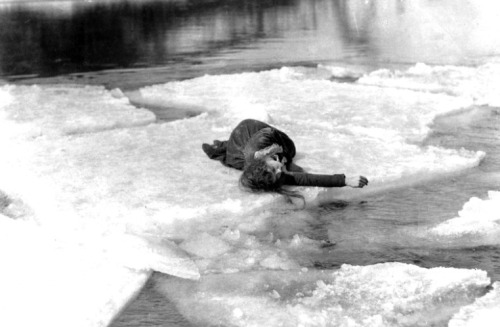
A
versão a que eu assisti tem a maioria de suas cenas em tons de sépia, com
algumas poucas – em especial a da catarata – em um tom de azul que me lembrou
da própria Gish balançando o berço em “Intolerância” (1916). Em se tratando de
visual, não podemos deixar de falar da sequência na nevasca, criada
exclusivamente para o cinema, que culmina com Anna desmaiada em uma pedra de
gelo (feita de madeira pela equipe cenográfica) e sendo levada para a morte.
Lillian permaneceu horas com a mão mergulhada nas águas geladas de um rio para
completar a cena, ficando com problemas motores na mão direita pelo resto da
vida.
The
version I watched has mosto f its scenes in sepiatone, with a few – in special
the waterfall sequence – in a blue tone that reminded me of Gish herself
rocking the cradle in “Intolerance” (1916). If we’re talking about visuals, we
have to mention the snowfall sequence, created especially for the film, that
culminates with Anna passed out on an ice rock (made of wood by the
scenographic team) and being taken slowly to her death. Lillian spent several
hours with her hand in the icy waters of a river, what led her to have motor
problems in her right hand for the rest oif her life.
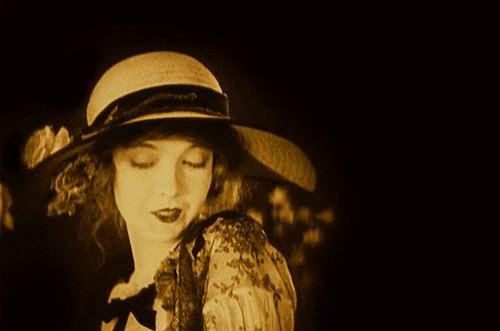
A
música é simpática, combinando melodias agradáveis que se intercalam e algumas
músicas conhecidas usadas em pequenos momentos, como a Marcha Nupcial, uma
canção de ninar e a cantiga folclórica infantil "Three Blind Mice".
Em uma cena de dança (dança no cinema mudo é algo bastante peculiar) a futura
estrela Norma Shearer participa como extra. Para surpresa geral, Griffith, em
meio ao drama de Anna, salpica momentos e personagens cômicos. Mais uma vez ele
constrói histórias paralelas (um gosto pessoal) que nem sempre se mostram úteis
(um defeito pessoal).
The
soundtrack in this version is very nice, as it mixes pleasant tunes and some
well-known songs used in particular moments, such as the Wedding March, a
lullaby and the folkloric “Three Blind Mice”. In a dance scene (something that
is quite peculiar in a silent movie) future film star Norma Shearer is an
extra. As a surprise, Griffith adds, in the middle of Anna’s drama, many comic
reliefs. Once more, he builds parallel stories (something he was fond of) that
are not exactly useful (something he is guilt of).
O tema excessivamente puritano soa datado. Anna não
poderia mais se casar porque ela não é "a branca flor virginal" com
que David
sempre sonhou. Hoje isso não mais se aplica (e se aplicasse, meu Deus!).
No entanto, outros aspectos moderninhos prevalecem, como Anna acusando
Lennox de tê-la enganado sem medo da reação alheia (OK, ela não tinha medo
porque sua situação não podia ficar pior), David atacando o pai após este
expulsar Anna e alguns detalhes finais: um beijo cômico entre dois homens e o
beijo entre Anna e a sogra, selando a união e terminando a película.
The
excessively puritane theme sounds dated. Anna couldn’t get married anymore
because she is not the “white virginal flower” that David has always dreamed
of. Today, the exigence of being a virgin is almost over in the world (thank
God!). However, there are some modern aspects in this movie, for instance: Anna
confronting Lennox and accusing him of betraying her, a confront in a fearless
way (even though her sitation couldn’t get any worse), David attacking his
father after he expels Anna and some final details: a comic kiss between two
men and the kiss between Anna and her mother-in-law, a gesture that shows the
union is sealed and the movie is over.
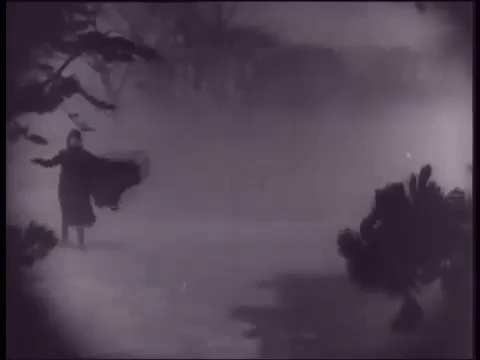
Como
não gosto do melodrama exagerado de Griffith, não me empolguei com o clímax no
gelo, mas confesso que é uma sequência tecnicamente impressionante e de beleza
pungente. Este filme foi 175 mil dólares mais caro que o épico "O
Nascimento de uma Nação / The Birth of a Nation" (1915). Nada controverso,
ele acabou se tornando um sucesso absoluto de público. Surpreendente,
incrivelmente moderno em alguns pontos e ultrapassado em outros, "Inocente
Pecadora" ainda emociona, diverte, prende o espectador e, em especial,
mostra o talento incontestável de Lillian Gish.
I’m not
a fan of Griffith’s exaggerated melodrama, so I wasn’t that moved by the clímax
in the ice, but I have to agree that the sequence is impressive and very
beautiful. This film costed 175,000 dollars more than “The Birth of a Nation”
(1915). As it was not controverse, it ended up being a box-office hit. It is
surprising, incredibly modern in some points and dated in others, but “Way Down
East” is still able to move, entertain, attract the viewer’s attention and, in
special, show Lillian Gish’s indisputable talent.
th,
